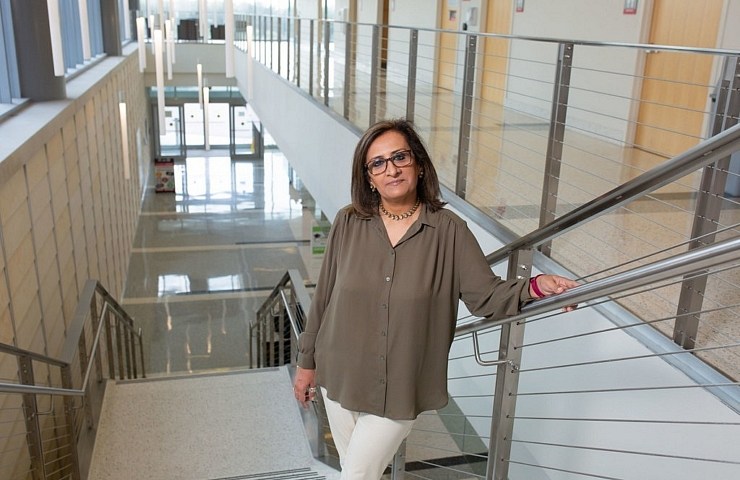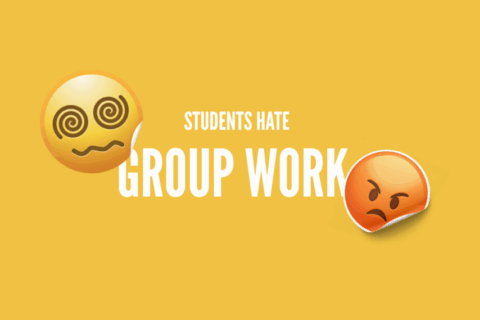My commute to work between Katy and UH main campus is a long one, which on most uneventful days on the Interstate-10 lasts at least an hour and a half each way. I usually tune in to podcasts or to Indian classical music to distract myself from traffic frustration and ignore rowdy drivers. Today as I was driving to work, I tuned in to a CNN podcast “All There Is” by Anderson Cooper in which Anderson presented a deeply personal exploration of loss and grief. He relayed the podcast as he was packing up the apartment of his late mother Gloria Vanderbilt and shared with the listeners his feelings of grief as he went through her journals and keepsakes, as well as things left behind by his father and brother, both of whom Anderson lost years ago, one to cardiac arrest and the other to suicide. In the podcast, Anderson interviewed a hospice and palliative care physician who offered exceptional wisdom to a difficult conversation including discussions of suicide. He also talked to the comedian Stephen Colbert in a thought-provoking conversation about grief.
I must admit that I have rarely listened to any podcast with as much attention as I did to this one. The podcast ended as my car seemingly autopiloted itself into the welcome center garage, I sat in my parked car listening to the entire podcast yet again. I have seen Anderson Cooper on television for many years and have admired his work, but today I felt a common ground with him. It was a comforting experience to know that people of privilege such as him, Stephen Colbert and others also go through grief the same way as those without it. “We are so different, you don’t know me, and I don’t know you”, I said to myself, “yet I feel so connected with you”. In the podcast, Anderson shared his attempts of addressing his grief and finding peace by fleeing to war-torn places like Somalia, and Bosnia where the tragedy of those affected by war, and trauma of their suffering in some strange way addressed his own experiences of loss and grief. To summarize, the podcast offered a deeply emotional and moving perspective about the people we lose, the things they leave behind, and importantly the struggle of how to live on with loss.
We all lose people we love, we don’t talk much about loss and grief, it is almost a taboo, a forbidden ground, which is weird considering it is the most universal experience, yet people suffer in silence. As a society, we have learned to practice avoidance behavior with extraordinarily high compliance when it comes to grief. We have trained and taught ourselves that the right etiquette is to let people grieve in solitude. How wrong are we and how untrue it is? I can say this from my own experience of loss that loneliness of grief is extraordinary, and just knowing that someone is acknowledging our experience is comforting. By acknowledgment I don’t mean the one that comes from grief counseling sessions with a therapist who may know us only from what we tell them about us. The acknowledgment I am referring to is one from our friends and family, yet it is often the most uncomfortable conversation to have and difficult to seek. Trapped in the “appropriate” culture, we often tend to under-humanize grief by our avoidance behavior.
It is commonly suggested that time is a great healer. I submit that it is not. What is lost is lost. What is broken is broken. It is not a dark side of our emotional milieu or a reflection of a sense of hopelessness. It is the truth, whether we own it or ignore it. Pain of loss never goes away nor does it lessen with time. Just as love is part of our life, so is the pain of loss. The depth of our grief for the loss of a loved one is a reminder of the depth of our love for them. Learning to be in the world, living and thriving, while carrying this absence is an indomitable task. Whether achievable or unrealistic depends upon our grit. The challenge as I see it is to not let the absence or loss of the person become a burden but instead a mark of love and respect, a sacred spot, which brings hope but not sorrow. My intention is not to romanticize or intellectualize grief in any way but simply to carve out a path forward. I know the feeling of the experience of picking up the phone to call, and then realizing that the person I wanted to share the news with is not there anymore. I know how it feels to read texts, and handwritten notes over and over again and wishing to be able to see the person just one more time. I know how heartbreaking it is to unlearn and undo all the tiny little habits and traditions. The parting of familiar routines continues to be a challenge, but therein lies the courage of suffering amidst the daily reminders of familiar fragrances, favorite places, foods, playlists, and more. What could be and could have been, is lost- but the past is saved in memories that will last. The path forward is that of hope which comes with the acknowledgment of pain, and the willingness to endure it. There is no way to avoid it. May the journey of all those hurting lead them to a tranquil destination.





Recent Comments